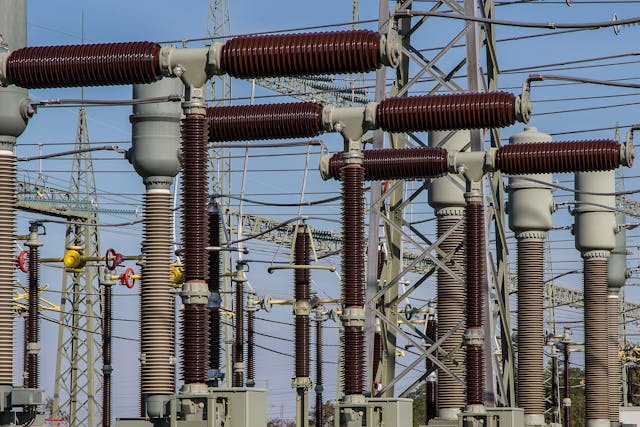Nigeria Prepares to Raise Price in Electricity Tariffs

In a move that’s set to ripple across households and industries, Nigeria braces itself for an uptick in electricity tariffs, a direct fallout from the recent surge in natural gas prices.
As the Nigerian government announces a significant increase in the cost of natural gas, the primary fuel for power generation, the nation finds itself at a pivotal juncture, confronting the realities of energy economics and its implications for the everyday consumer.
The Catalyst Behind the Hike
At the heart of this adjustment is the rise in the price of natural gas, which soared from $2.18 to $2.42 per metric million British thermal units (MMBtu). This development is not just a statistic but a harbinger of increased operational costs for gas-fired thermal power plants, which shoulder the responsibility of lighting up over 70% of Nigeria.
Key Points at a Glance:
- Price Adjustment: Natural gas, essential for power generation, now costs $2.42 per MMBtu, up from $2.18.
- Regulatory Review: The Nigerian Electricity Regulatory Commission (NERC) acknowledges the price hike’s potential impact on electricity tariffs.
- Policy Updates: The Nigerian Midstream and Downstream Petroleum Regulatory Authority (NMDPRA) revises domestic and commercial gas prices, signaling changes in the energy sector’s financial landscape.
A Closer Look at the Implications
This price revision isn’t merely a matter of corporate bookkeeping. It’s a signal to the Nigerian populace that the cost of keeping the lights on is set to climb.
The NERC’s review of the new natural gas price points to an inevitable increase in electricity tariffs, affecting both residential and commercial power consumers across the nation.
The Dynamics of Demand and Supply:
- Energy Dependence: With a substantial portion of Nigeria’s electricity generated from gas-fired plants, the price of natural gas directly influences electricity tariffs.
- Commercial Considerations: The hike in commercial gas prices from $2.5 to $2.92 per MMBtu underscores the broader economic pressures facing the Nigerian energy sector.
Also Read: The Top Oil Producing Countries in Africa
The Voices Behind the Numbers
Farouk Ahmed, the Chief Executive of NMDPRA, stands at the helm of these changes, orchestrating the announcement that has set the stage for a national conversation on energy sustainability and economic resilience.
Industry’s Call to Action:
- Gas Producers’ Stance: The clamor for price adjustments by gas producers, citing the need for increased output, illuminates the complex interplay between market forces and production capacities.
The Road Ahead: Tariff Transformations
As the shadows of these adjustments loom over Nigeria, the echoes of the January 2024 Multi-Year Tariff Order resonate, highlighting the fluidity of the energy sector’s economic foundations. This impending tariff adjustment, while rooted in the nuances of natural gas pricing, opens up broader discussions on energy policy, consumer protection, and sustainable development.
In Conclusion
The announcement of an increase in electricity tariffs in Nigeria, driven by the uptick in natural gas prices, marks a critical juncture in the nation’s energy narrative.
As consumers, businesses, and policymakers navigate these turbulent waters, the need for a balanced approach to energy affordability and sustainability has never been more pronounced.
With the global eyes watching and the local populace waiting, the unfolding chapters of Nigeria’s energy story will undoubtedly offer lessons in resilience, innovation, and the pursuit of equitable growth.
FAQs
- What caused the increase in electricity tariffs in Nigeria?
- The rise in natural gas prices, from $2.18 to $2.42 per MMBtu, is the primary cause of the anticipated increase in electricity tariffs.
- Who announced the revised gas prices?
- The Nigerian Midstream and Downstream Petroleum Regulatory Authority (NMDPRA) announced the revised gas prices.
- How does Nigeria generate most of its electricity?
- Over 70% of Nigeria’s electricity is generated from gas-fired thermal power plants.
- What does this mean for Nigerian power consumers?
- Nigerian power consumers are likely to experience an increase in electricity tariffs due to the rise in natural gas prices.
- Who is Farouk Ahmed?
- Farouk Ahmed is the Chief Executive of the Nigerian Midstream and Downstream Petroleum Regulatory Authority (NMDPRA).
- Why do gas producers want an increase in the price?
- Gas producers are advocating for a price increase to encourage higher output and ensure the sustainability of domestic and foreign oil and gas businesses.
- What are the implications of this tariff increase for the average Nigerian?
- The average Nigerian may face higher electricity bills, impacting household budgets and the operational costs of businesses reliant on electrical power.




